
Medan: The Melting Pot of Indonesia
Medan, the capital of North Sumatra, is a vibrant city that offers a rich blend of cultures, history, and culinary delights. Known for its diverse population, Medan is a melting pot where Malay, Batak, Chinese, Indian, and Dutch influences come together to create a unique urban tapestry. This diversity is reflected in its architecture, with colonial-era buildings standing alongside traditional houses and modern skyscrapers. For history enthusiasts, Medan offers a journey through time with landmarks like Maimun Palace and the Great Mosque of Medan. These historical sites provide a glimpse into the city's royal past and architectural grandeur. The city also serves as a gateway to the stunning natural beauty of North Sumatra, including Lake Toba and the Samosir Island, which are just a few hours' drive away. Food lovers will find Medan to be a culinary paradise. The city is famous for its street food and local delicacies such as Bika Ambon, Soto Medan, and Durian Ucok. The bustling markets, like Pasar Petisah and Pasar Ikan, offer an authentic taste of Medan's vibrant food scene. Whether you're exploring the busy streets or relaxing in one of its many cafes, Medan promises an unforgettable experience.
Local tips in Medan
- Visit Maimun Palace early in the morning to avoid the crowds and enjoy the architecture in peace.
- Try the local street food at Jalan Selat Panjang for an authentic culinary experience.
- Hire a local guide when visiting Lake Toba to learn about the history and culture of the Batak people.
- Use ride-hailing apps like Grab or Gojek for convenient and affordable transportation around the city.
- Stay hydrated and carry a bottle of water, especially when exploring outdoor sites in the tropical heat.
Neighbourhoods in Medan
Medan: The Melting Pot of Indonesia
Medan, the capital of North Sumatra, is a vibrant city that offers a rich blend of cultures, history, and culinary delights. Known for its diverse population, Medan is a melting pot where Malay, Batak, Chinese, Indian, and Dutch influences come together to create a unique urban tapestry. This diversity is reflected in its architecture, with colonial-era buildings standing alongside traditional houses and modern skyscrapers. For history enthusiasts, Medan offers a journey through time with landmarks like Maimun Palace and the Great Mosque of Medan. These historical sites provide a glimpse into the city's royal past and architectural grandeur. The city also serves as a gateway to the stunning natural beauty of North Sumatra, including Lake Toba and the Samosir Island, which are just a few hours' drive away. Food lovers will find Medan to be a culinary paradise. The city is famous for its street food and local delicacies such as Bika Ambon, Soto Medan, and Durian Ucok. The bustling markets, like Pasar Petisah and Pasar Ikan, offer an authentic taste of Medan's vibrant food scene. Whether you're exploring the busy streets or relaxing in one of its many cafes, Medan promises an unforgettable experience.
When is the best time to go to Medan?
Iconic landmarks you can’t miss
Taman Ahmad Yani Medan
Experience the natural beauty and cultural richness of Taman Ahmad Yani, a serene park in the heart of Medan, North Sumatra.
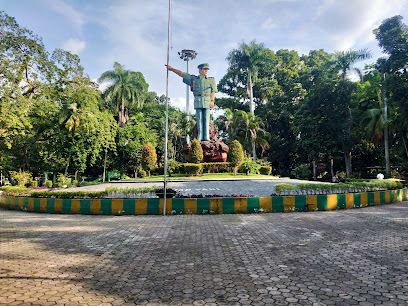
Tjong A Fie Mansion
Explore the Tjong A Fie Mansion, a stunning heritage museum in Medan, showcasing rich history and exquisite architecture of Indonesia's cultural heritage.
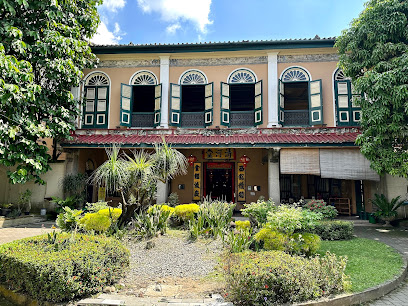
Rahmat International Wildlife Museum & Gallery
Explore the stunning Rahmat International Wildlife Museum & Gallery in Medan, featuring over 1,500 taxidermied animals and engaging educational programs.
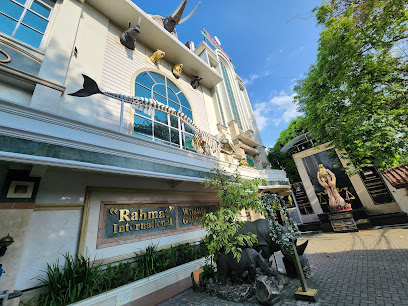
State Museum of North Sumatra
Explore the rich cultural heritage of North Sumatra at the State Museum, offering fascinating exhibits and insights into the region's history.
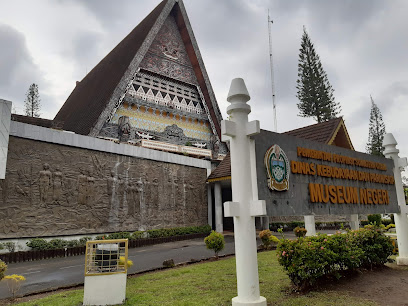
Mariamman Temple
Explore the vibrant spirituality and intricate beauty of Mariamman Temple, a must-see Hindu temple in Medan, Indonesia, showcasing local cultural heritage.
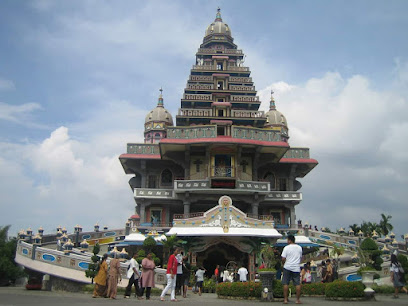
Meriam Puntung
Explore Meriam Puntung, a historical landmark in Medan City, showcasing rich cultural heritage amidst beautiful gardens.
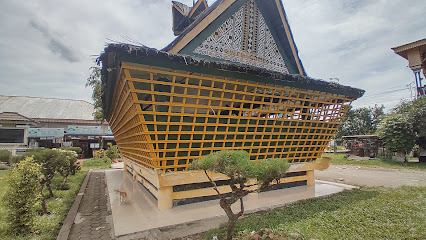
Warenhuis
Explore the captivating historical significance of Warenhuis in Medan, North Sumatra, where history, culture, and architecture unite.
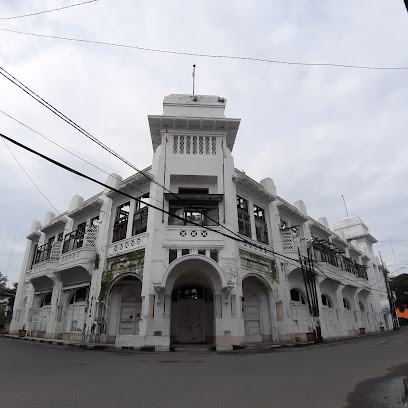
Poort van de Al Mashun-moskee
Explore the Poort van de Al Mashun Mosque, a historical gem in Medan showcasing stunning architecture and rich cultural heritage.
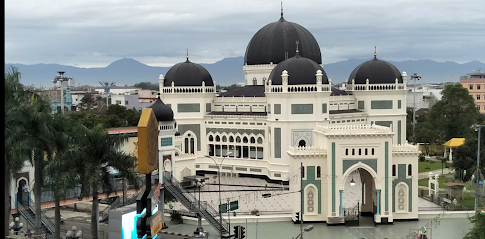
Old Town Medan
Discover the rich heritage and architectural beauty of Old Town Medan, a historical landmark that reflects the vibrant culture of Indonesia.
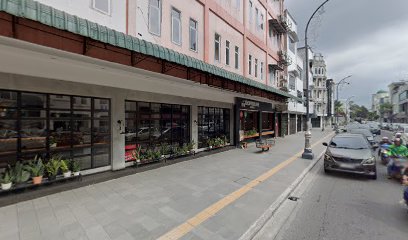
Virtuous Bridge/Jembatan Kebajikan
Discover Medan's cultural heritage at the Virtuous Bridge, a historical landmark that offers stunning views and a glimpse into the city's vibrant life.
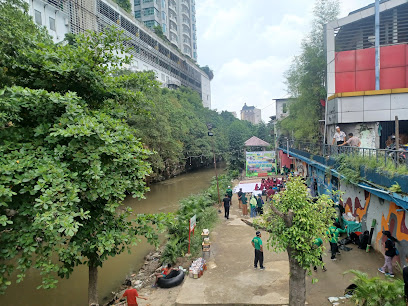
RUMAH PAK SAID
Explore Rumah Pak Said, a captivating historical landmark in Medan, North Sumatra, showcasing the region's rich cultural heritage and traditional architecture.
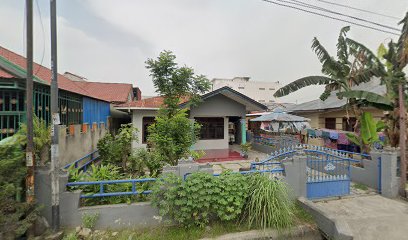
Tempat mabar epep roji
Discover the rich heritage and architectural beauty of Tempat Mabar Epep Roji, a historical landmark in Medan, North Sumatra, perfect for culture enthusiasts.
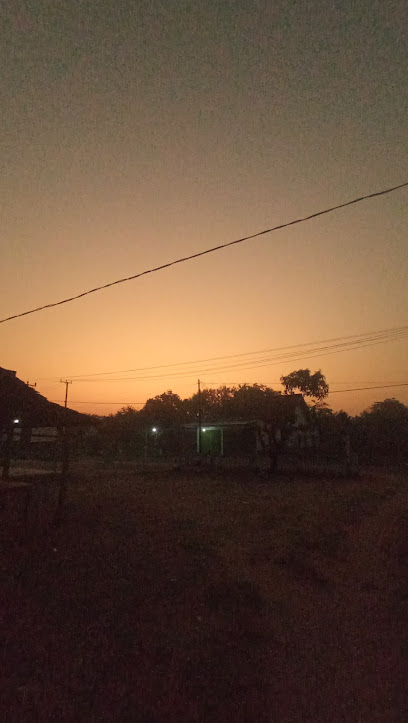
Peninggalan Sejarah
Discover the rich heritage of Medan at Peninggalan Sejarah, a historical landmark that showcases the cultural tapestry of North Sumatra.
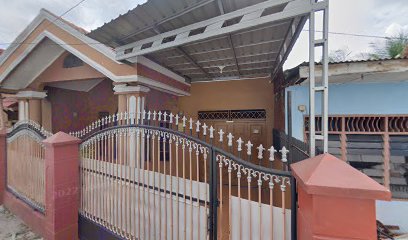
Cagar Budaya (Rumah KH Muhammad Thahir)
Discover the cultural heritage of Medan at Cagar Budaya, a historical landmark that tells the story of Indonesia's rich past and vibrant traditions.
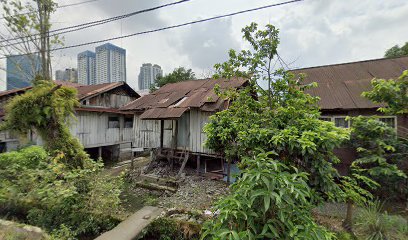
Tempat ternyaman
Experience the authentic local lifestyle at Tempat Ternyaman in Medan, North Sumatra, where community and culture come alive.
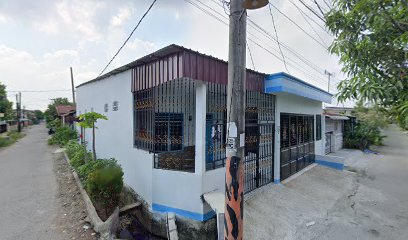
Unmissable attractions to see
Graha Bunda Maria Annai Velangkanni
Discover the stunning architecture and serene atmosphere of Graha Bunda Maria Annai Velangkanni, a must-visit spiritual landmark in Medan, North Sumatra.
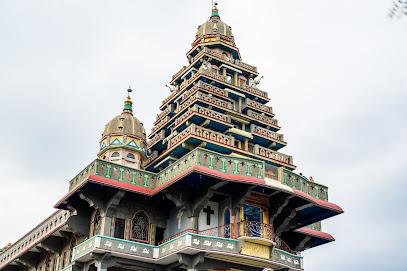
Maha Vihara Maitreya
Explore the serene beauty and rich culture of Maha Vihara Maitreya, a stunning Buddhist temple in Medan, a unique gem for spiritual seekers and travelers alike.
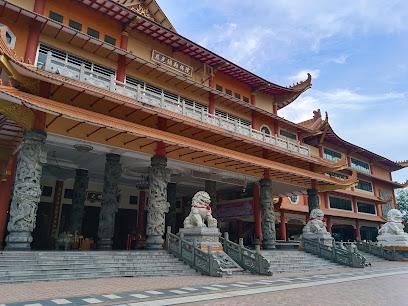
Taman Alam Lumbini
Experience the tranquility and cultural richness of Taman Alam Lumbini, a serene tourist attraction in North Sumatra, Indonesia.
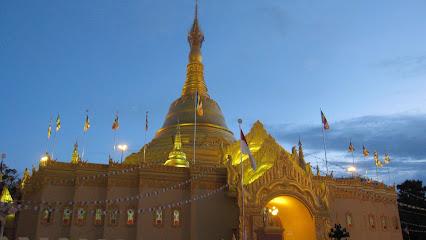
The Le Hu Garden
Explore the serene beauty of The Le Hu Garden, a picturesque park and restaurant in North Sumatra, perfect for relaxation and culinary delights.
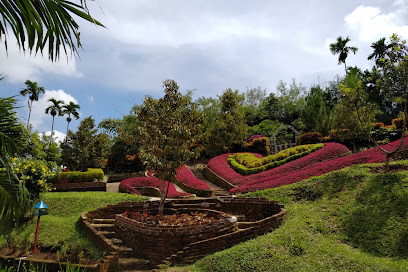
Gajah Mada Park
Explore the lush landscapes and cultural vibrancy of Gajah Mada Park, an urban sanctuary in Medan, perfect for relaxation and recreation.
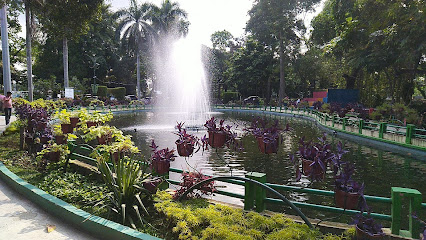
Tjong A Fie Mansion
Experience the rich cultural heritage and stunning architecture of Tjong A Fie Mansion, a must-visit landmark in Medan, Indonesia.
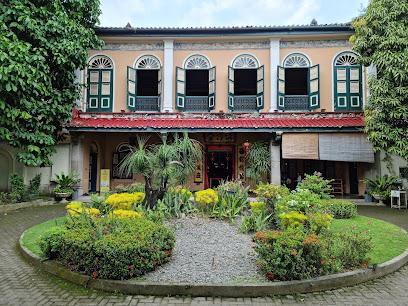
Rahmat International Wildlife Museum & Gallery
Explore the wonders of nature at Rahmat International Wildlife Museum & Gallery, a premier attraction in Medan showcasing wildlife conservation and breathtaking exhibits.
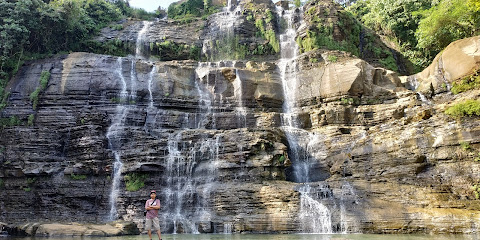
State Museum of North Sumatra
Explore North Sumatra's rich history and culture at the State Museum, where fascinating exhibits await every curious traveler.
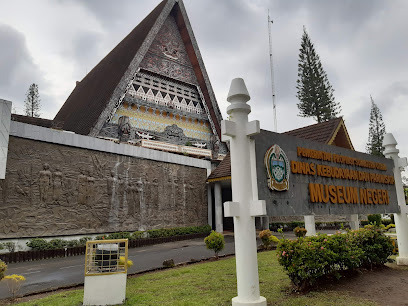
Gundaling Hill Top
Explore the stunning landscapes and recreational trails at Gundaling Hill Top, a must-visit destination in North Sumatra for every nature lover.
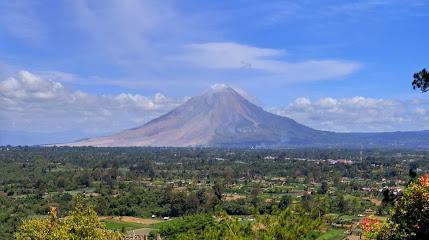
Penangkaran Buaya Asam Kumbang
Explore the captivating world of crocodiles at Penangkaran Buaya Asam Kumbang, a top wildlife refuge in Medan, Sumatra, offering thrilling encounters for all ages.
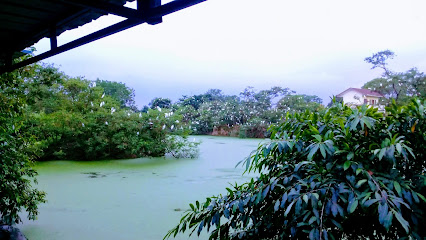
Sri Deli Park
Discover the tranquil beauty of Sri Deli Park, a green oasis in Medan City, perfect for relaxation, picnics, and cultural experiences amidst vibrant nature.
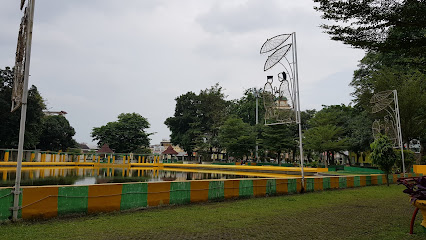
Istana Maimun
Explore Istana Maimun, a stunning blend of Malay, Islamic, and colonial architecture, and immerse yourself in the rich history of Medan, Indonesia.
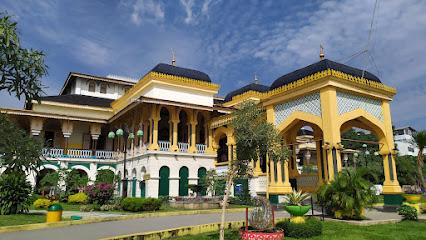
Pos Bloc Medan
Explore the vibrant Pos Bloc Medan, a cultural and culinary hub in the heart of Medan, North Sumatra, where local flavors and community spirit come alive.
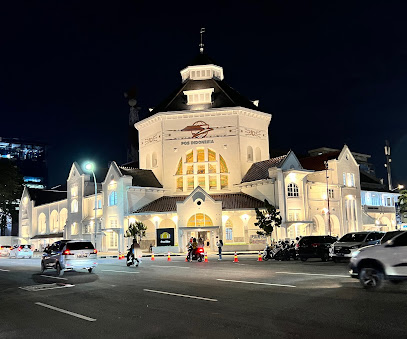
Danau Siombak
Discover the tranquil beauty and local charm of Danau Siombak, a serene lake in Medan, North Sumatra, perfect for relaxation and adventure.
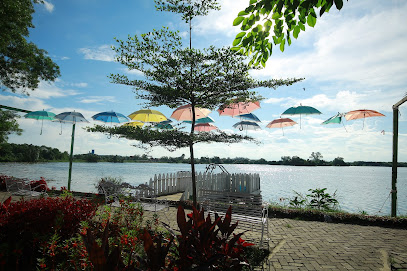
Mariamman Temple
Explore the breathtaking architecture and rich cultural heritage of Mariamman Temple, a spiritual haven in the heart of Medan, Sumatera Utara.
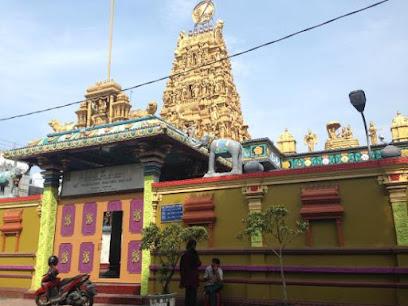
Essential places to dine
Wajir Seafood
Experience the vibrant flavors of Indonesia at Wajir Seafood in Medan – a must-visit for seafood lovers seeking authentic local cuisine.
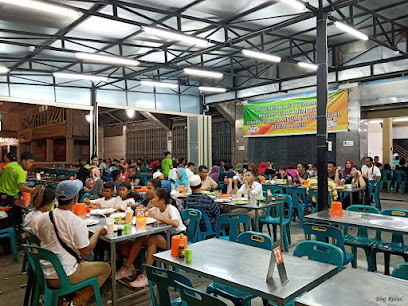
Mie Aceh Titi Bobrok
Experience authentic Indonesian flavors at Mie Aceh Titi Bobrok, a beloved noodle shop in Medan serving deliciously spicy dishes.
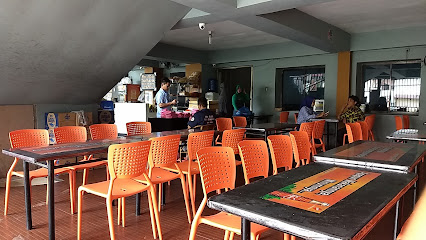
Lembur Kuring
Discover Lembur Kuring, Medan's premier seafood destination offering fresh flavors and a vibrant dining atmosphere.
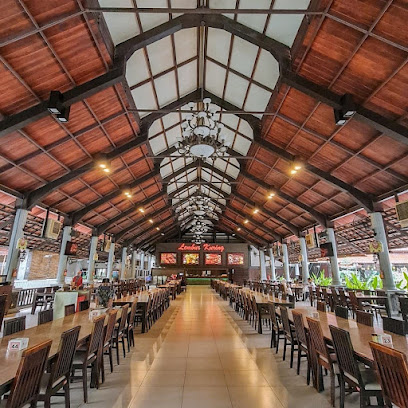
Rumah Makan Tabona
Experience authentic Indonesian flavors at Rumah Makan Tabona in Medan - a must-visit diner for food lovers.
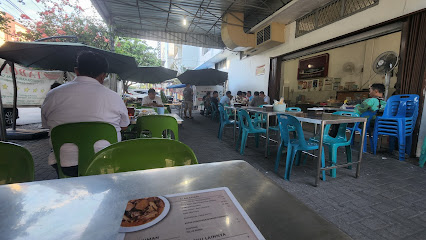
Tip Top Restaurant
Discover authentic Indonesian flavors at Tip Top Restaurant in Medan - home of the best Nasi Goreng!
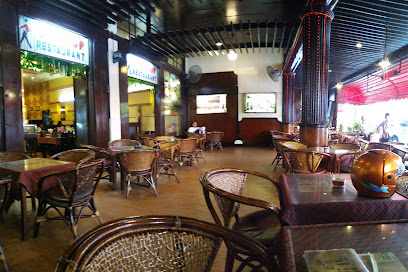
Koki Sunda
Discover the rich flavors of Sundanese cuisine at Koki Sunda, a top-rated restaurant in Medan offering an unforgettable dining experience.
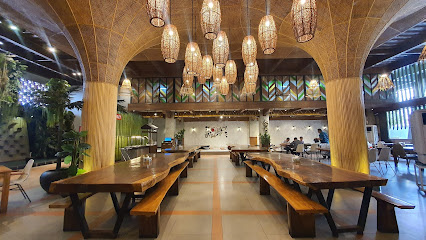
Rumah Makan Sinar Pagi
Discover the authentic flavors of Indonesia at Rumah Makan Sinar Pagi - the best Soto Ayam restaurant in Medan City.
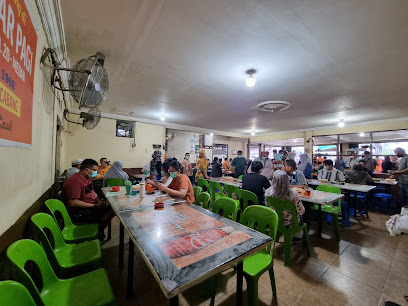
Sari Laut Nelayan
Discover Sari Laut Nelayan: Medan's top destination for exquisite seafood and delightful dim sum in a vibrant dining atmosphere.
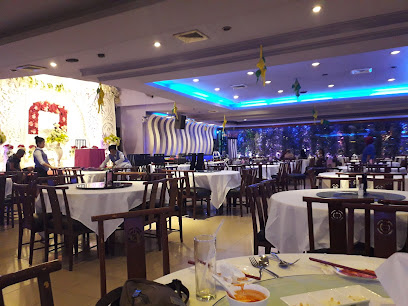
Desadesa Resto
Experience the vibrant flavors of Bali at Desadesa Resto in Medan—where culinary tradition meets modern buffet dining.
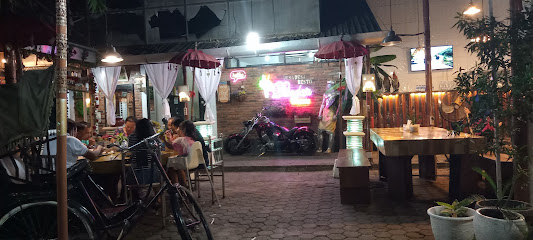
LKKR (Lekker Urban Food House Putri Hijau)
Discover delightful culinary experiences at LKKR in Medan - where family-friendly dining meets urban charm.
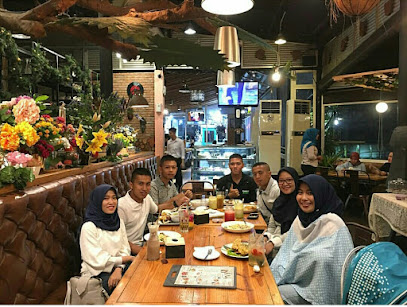
WOWRUNG
Experience the best of local and international flavors at WOWRUNG in Medan – where every meal is a celebration.
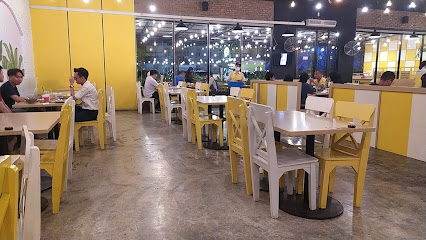
The Traders Restaurant
Savor premium steaks and exquisite Western cuisine at The Traders Restaurant in Medan - a must-visit culinary gem.
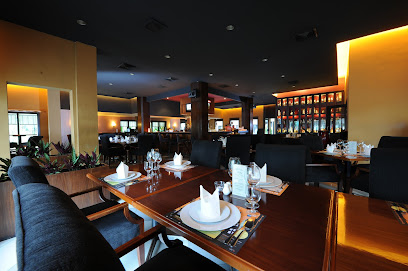
Golden Yen
Experience the vibrant flavors of Medan at Golden Yen, your ultimate breakfast destination featuring diverse culinary delights.
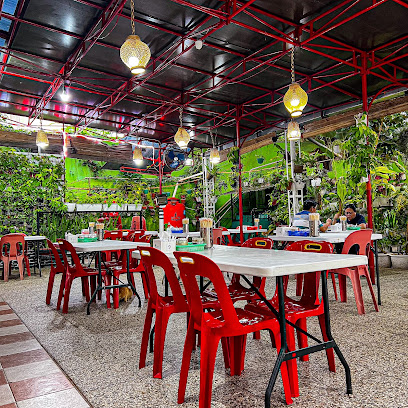
SOHO Capital Medan
Discover luxury dining at SOHO Capital Medan - where Western flavors meet an elegant atmosphere in the heart of North Sumatra.
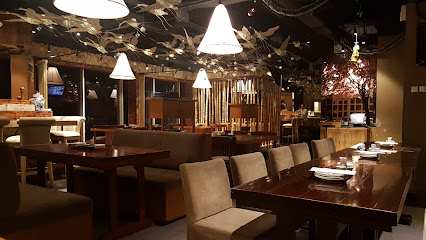
RM Acek Botak
Discover authentic Chinese cuisine at RM Acek Botak in Medan—where every dish tells a story of tradition and flavor.
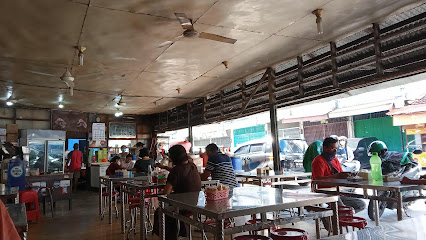
Markets, malls and hidden boutiques
Sun Plaza
Experience the ultimate shopping and dining adventure at Sun Plaza, Medan's top destination for retail therapy and entertainment.
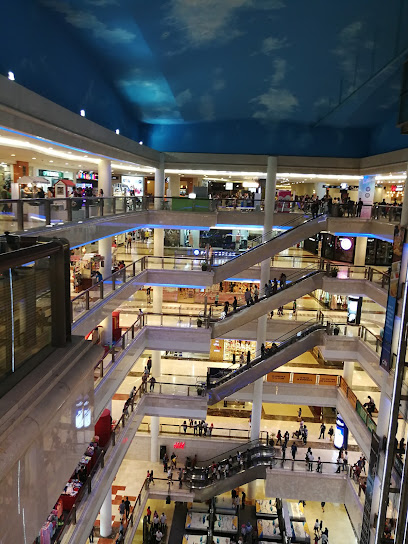
Plaza Medan Fair
Discover the vibrant Plaza Medan Fair, where shopping, dining, and entertainment come together in the heart of Medan, North Sumatra.
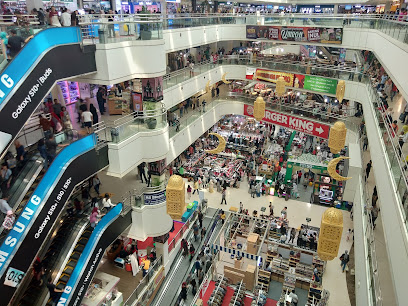
Medan Mall
Discover Medan Mall, the ultimate shopping destination in North Sumatra, featuring diverse shops, delicious dining, and thrilling entertainment options.
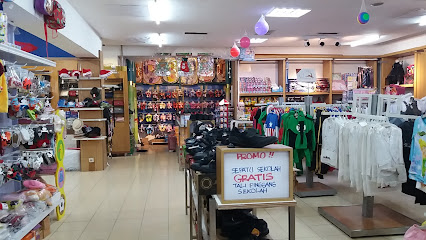
DeliPark Mall Medan
Discover shopping, dining, and entertainment at DeliPark Mall Medan, your go-to destination in North Sumatra.
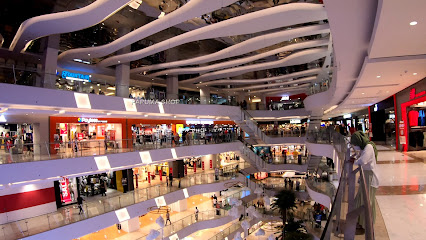
Yuki Simpang Raya
Explore Yuki Simpang Raya in Medan for a unique blend of shopping, dining, and entertainment in a vibrant cultural setting.
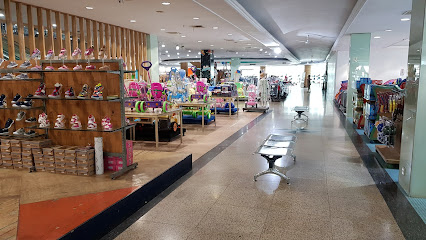
Matahari
Explore Matahari in Medan – an essential shopping destination offering a wide range of products from fashion to home essentials.
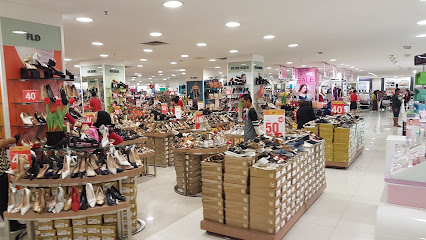
Matahari Department Store Medan Thamrin
Explore the vibrant Matahari Department Store Medan Thamrin, your ultimate shopping destination for fashion, home goods, and local products.
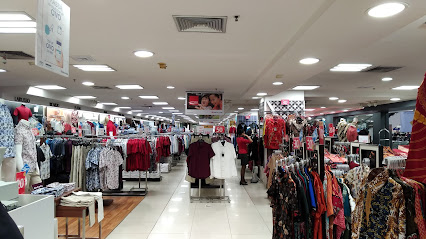
KUDO x METRO ANIME STORE
Discover a vibrant fusion of anime culture and trendy fashion at KUDO x METRO ANIME STORE in Medan - a must-visit for every traveler.
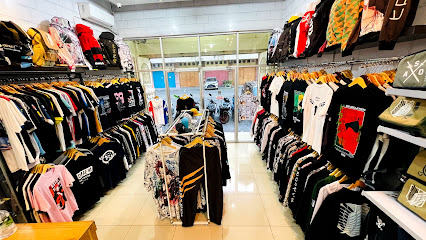
KKV Delipark Mall
Explore KKV Delipark Mall: Medan's premier supermarket for local flavors, fresh produce, and unique shopping experiences.
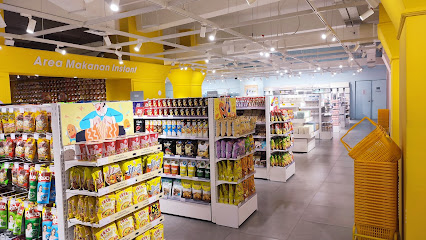
Branded Shop Medan
Discover the vibrant fashion scene at Branded Shop Medan, where local and international styles come together in a shopper's paradise in Medan City.
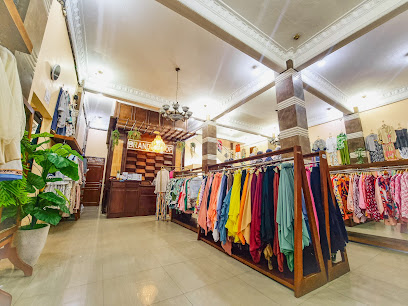
Amway Indonesia Flagship Store Medan
Explore wellness and beauty at Amway Indonesia Flagship Store Medan, your destination for health supplements and cosmetics in North Sumatra.
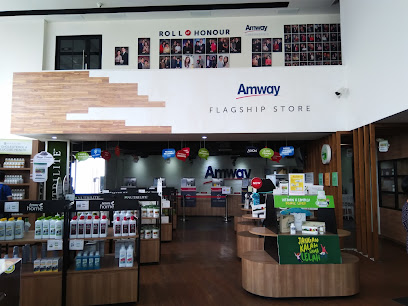
SOGO Deli Park Mall
Explore SOGO Deli Park Mall in Medan, a vibrant shopping destination for fashion, electronics, and delightful dining experiences.
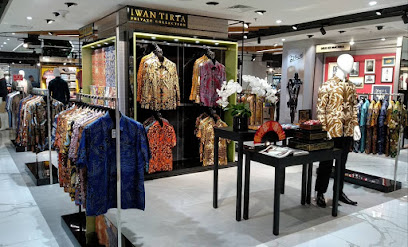
JEGEZ GALLERY ETNIK MEDAN
Explore Jegez Gallery Etnik Medan for authentic Indonesian handicrafts and unique souvenirs that embody the local culture and artistry.
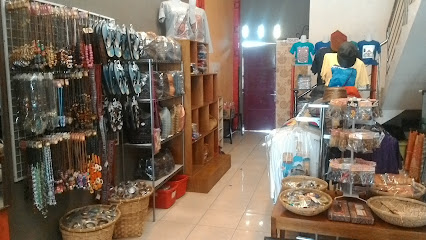
I Love Medan (oleh oleh Kaos Medan)
Discover the essence of Medan at I Love Medan, where unique souvenirs and stylish local apparel await every traveler.
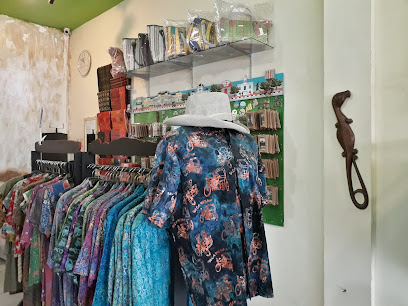
Qboid Concept Store
Explore Medan's Qboid Concept Store for a unique shopping experience filled with local treasures and trendy finds in a vibrant atmosphere.
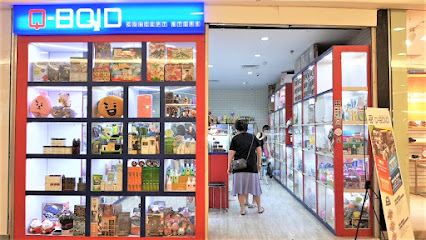
Essential bars & hidden hideouts
District 10 Restaurant & Bar
Experience a fusion of Italian and local flavors at District 10 Restaurant & Bar, where every meal is a celebration of taste.
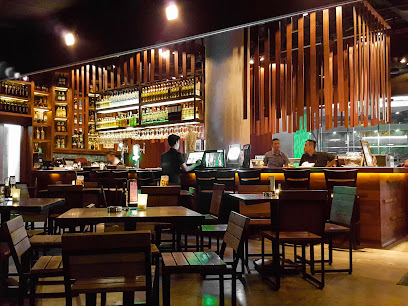
Level 02
Experience the vibrant nightlife of Medan at Level 02, where great drinks and a lively atmosphere await you.
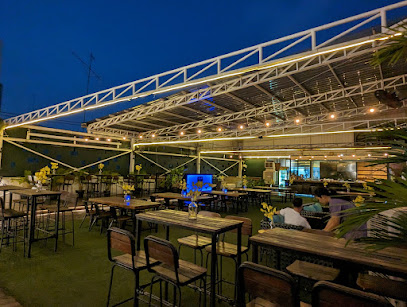
Healy Mac's Bar And Restaurant Medan
Experience the lively atmosphere and diverse menu at Healy Mac's Bar and Restaurant in Medan, where culinary delight meets vibrant social scenes.
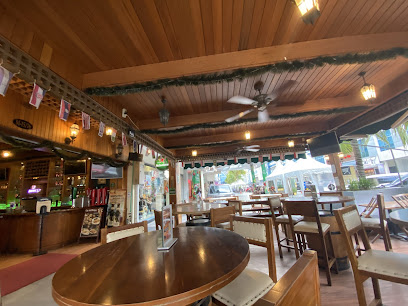
Harbour 9
Discover Harbour 9, a stylish bar in Medan offering an extensive drink menu and stunning views for an unforgettable nightlife experience.
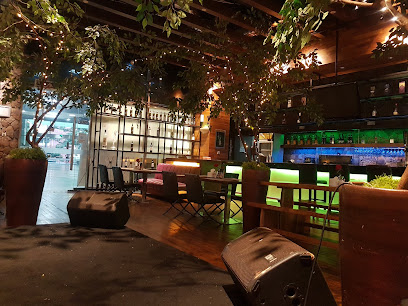
Shoot. Resto.Bar.Club
Immerse yourself in the lively nightlife of Medan at Shoot. Resto.Bar.Club, where great food meets unforgettable music and dance.
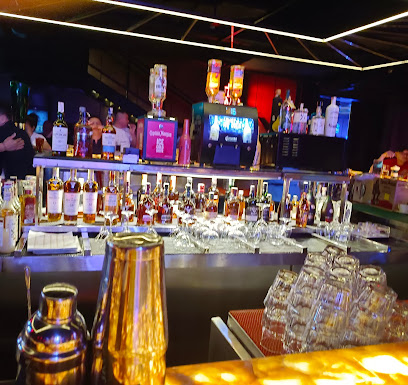
Cello Skypool & Lounge Bar
Experience breathtaking skyline views and exquisite cocktails at Medan's premier rooftop bar, Cello Skypool & Lounge Bar, a must-visit for nightlife enthusiasts.
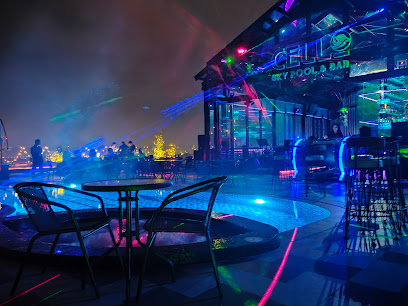
SKY the Oasis Rooftop Bar & Lounge
Discover the vibrant nightlife of Medan at SKY the Oasis Rooftop Bar & Lounge, where cocktails, live music, and stunning views await.
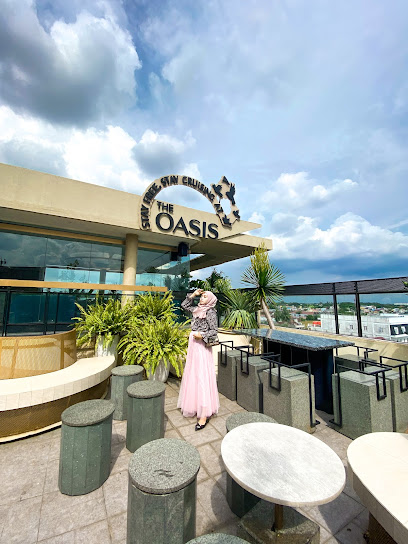
HW Helen's Live Bar Medan
Discover the lively nightlife at HW Helen's Live Bar Medan, where music, drinks, and unforgettable experiences await you.
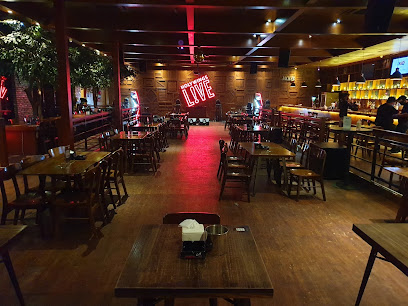
High5 Bar & Lounge
Experience the vibrant nightlife of Medan at High5 Bar & Lounge, where live music, creative cocktails, and a lively atmosphere await.
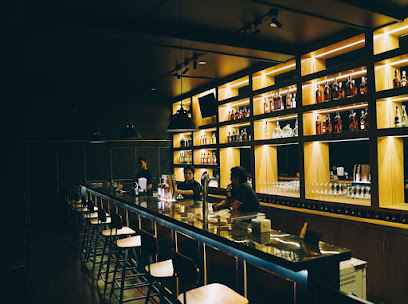
Prime Bar
Indulge in exquisite cocktails and stunning views at Prime Bar, a luxurious nightlife experience in the heart of Medan.
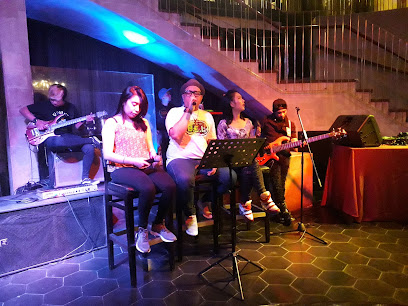
Bru garden
Experience the vibrant nightlife at Bru Garden, Medan's top bar for cocktails, live music, and an unforgettable atmosphere.
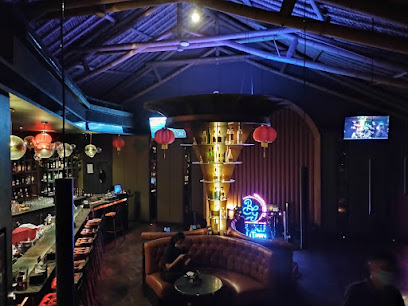
The Lounge
Discover the perfect blend of relaxation and flavor at The Lounge in Medan, where chic ambiance meets delightful culinary experiences.
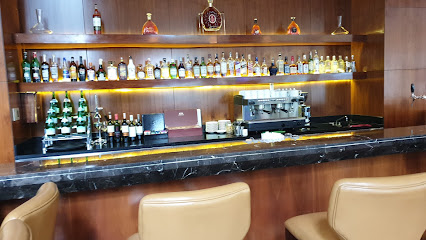
Kakatua Lounge
Experience the vibrant nightlife at Kakatua Lounge, where live music meets a stylish atmosphere in the heart of Medan.
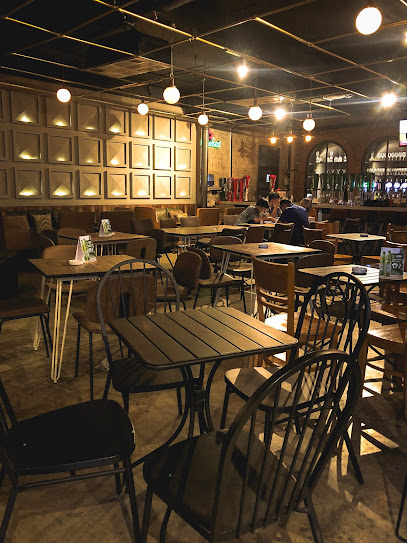
The palace Pub & Bar
Discover the vibrant atmosphere of The Palace Pub & Bar in Medan, where relaxation meets entertainment in a unique setting.
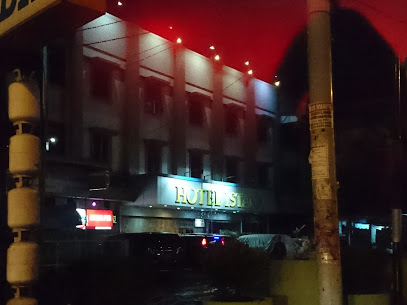
Local Phrases
-
- HelloHalo
[ha-lo] - GoodbyeSelamat tinggal
[se-la-mat ting-gal] - YesYa
[ya] - NoTidak
[ti-dak] - Please/You're welcomeSilakan
[si-la-kan] - Thank youTerima kasih
[te-ri-ma ka-sih] - Excuse me/SorryMaaf
[ma-af] - How are you?Apa kabar?
[a-pa ka-bar] - Fine. And you?Baik. Bagaimana dengan Anda?
[ba-ik. ba-gai-ma-na den-gan an-da] - Do you speak English?Apakah Anda bisa berbicara bahasa Inggris?
[a-pa-kah an-da bi-sa ber-bi-ca-ra ba-ha-sa ing-gris] - I don't understandSaya tidak mengerti
[sa-ya ti-dak men-ger-ti]
- HelloHalo
-
- I'd like to see the menu, pleaseSaya ingin melihat menu, silakan
[sa-ya in-gin me-li-hat me-nu, si-la-kan] - I don't eat meatSaya tidak makan daging
[sa-ya ti-dak ma-kan dai-ning] - Cheers!Selamat minum!
[se-la-mat mi-num] - I would like to pay, pleaseSaya ingin membayar, silakan
[sa-ya in-gin mem-ba-yar, si-la-kan]
- I'd like to see the menu, pleaseSaya ingin melihat menu, silakan
-
- Help!Tolong!
[to-long] - Go away!Pergi!
[per-gi] - Call the Police!Panggil polisi!
[pang-gil po-li-si] - Call a doctor!Panggil dokter!
[pang-gil dok-ter] - I'm lostSaya tersesat
[sa-ya ter-se-sat] - I'm illSaya sakit
[sa-ya sa-kit]
- Help!Tolong!
-
- I'd like to buy...Saya ingin membeli...
[sa-ya in-gin mem-be-li] - I'm just lookingSaya hanya melihat-lihat
[sa-ya han-ya me-li-hat-li-hat] - How much is it?Berapa harganya?
[be-ra-pa har-gan-ya] - That's too expensiveItu terlalu mahal
[i-tu ter-la-lu ma-hal] - Can you lower the price?Bisa kurangi harganya?
[bi-sa ku-ran-gi har-gan-ya]
- I'd like to buy...Saya ingin membeli...
-
- What time is it?Sekarang jam berapa?
[se-ka-rang jam be-ra-pa] - It's one o'clockSekarang pukul satu
[se-ka-rang pu-kul sa-tu] - Half past (10)Setengah (sepuluh)
[se-ten-gah (se-pu-luh)] - MorningPagi
[pa-gi] - AfternoonSiang
[si-ang] - EveningMalam
[ma-lam] - YesterdayKemarin
[ke-ma-rin] - TodayHari ini
[ha-ri i-ni] - TomorrowBesok
[be-sok] - 1Satu
[sa-tu] - 2Dua
[du-a] - 3Tiga
[ti-ga] - 4Empat
[em-pat] - 5Lima
[li-ma] - 6Enam
[e-nam] - 7Tujuh
[tu-juh] - 8Delapan
[de-la-pan] - 9Sembilan
[sem-bi-lan] - 10Sepuluh
[se-pu-luh]
- What time is it?Sekarang jam berapa?
-
- Where's a/the...?Di mana ...?
[di ma-na] - What's the address?Apa alamatnya?
[a-pa a-lam-at-nya] - Can you show me (on the map)?Bisa tunjukkan ke saya (di peta)?
[bi-sa tun-juk-kan ke sa-ya (di pe-ta)] - When's the next (bus)?Kapan yang berikutnya (bus)?
[ka-pan yang be-ru-tu-nya (bus)] - A ticket (to ....)Tiket (ke ....)
[ti-ket (ke)]
- Where's a/the...?Di mana ...?
History of Medan
-
Medan traces its roots back to the early 16th century when it was a part of the Kingdom of Aru. The area was initially a small village known for its strategic location along the Deli River, which facilitated trade and transportation. The indigenous Karo people were among the earliest inhabitants, and their influence is still evident in the region's culture and traditions.
-
In 1632, the Deli Sultanate was established by Tuanku Panglima Gocah Pahlawan, a military leader of Acehnese descent. The Sultanate thrived on the fertile lands around Medan, cultivating rice and other crops. The Sultanate's rule marked the beginning of Medan's transformation into a significant political and economic center in North Sumatra.
-
The Dutch East India Company began to exert influence over Medan in the late 19th century. By the 1860s, the Dutch had established control over the region, leading to the rapid development of tobacco and rubber plantations. This period saw an influx of Chinese and Indian laborers, contributing to Medan's diverse cultural tapestry. The wealth generated from these plantations transformed Medan into a bustling colonial city.
-
During World War II, Medan fell under Japanese occupation from 1942 to 1945. The Japanese regime implemented harsh policies, leading to significant hardship for the local population. However, this period also sparked a rise in nationalist sentiments, as Indonesians began to seek independence from colonial rule.
-
Following Indonesian independence in 1945, Medan emerged as a vital urban center in the new nation. The city experienced rapid urbanization and modernization, becoming a hub for trade, commerce, and industry. Today, Medan is the fourth largest city in Indonesia and serves as a gateway to the rich cultural and natural attractions of North Sumatra.
-
Medan's cultural landscape is a mosaic of influences from its historical inhabitants, including the Batak, Malay, Chinese, Indian, and Acehnese communities. This diversity is reflected in the city's architecture, cuisine, and festivals. Notable cultural landmarks include the Maimun Palace, the Great Mosque of Medan, and the vibrant traditional markets that offer a glimpse into the city's rich heritage.
Medan Essentials
-
Medan is accessible via Kualanamu International Airport (KNO), located about 39 kilometers from the city center. Direct flights to Medan are available from major cities in Southeast Asia, such as Kuala Lumpur, Singapore, and Bangkok. Once you arrive at the airport, you can take a taxi, airport shuttle, or the Airport Rail Link to reach the city center. The train journey takes approximately 30 minutes.
-
Getting around Medan is convenient with various transportation options. Taxis and ride-hailing services like Grab are widely available and reasonably priced. For a more adventurous mode of transport, consider taking a becak, a traditional three-wheeled pedicab. Public buses and minivans (angkot) also operate throughout the city, but they can be crowded and less comfortable. Renting a car or motorbike is another option if you prefer to explore at your own pace.
-
The official currency in Indonesia is the Indonesian Rupiah (IDR). Credit cards are accepted in most hotels, restaurants, and larger shops, but it is advisable to carry cash for smaller establishments and local markets. ATMs are widely available in Medan, and major international cards are usually accepted. Currency exchange services are also available at the airport and in the city center.
-
Medan is generally safe for tourists, but it is important to take standard precautions. Petty crimes such as pickpocketing can occur, especially in crowded areas like markets and public transportation hubs. Avoid displaying valuables and be cautious of your surroundings. Some areas, such as the Medan Petisah and Medan Maimun districts, have higher crime rates targeting tourists, so exercise extra vigilance when visiting these neighborhoods.
-
In case of an emergency, dial 112 for immediate assistance. Medan has several hospitals and clinics, such as the Adam Malik Hospital and Columbia Asia Hospital, providing medical care. Pharmacies are also readily available for minor health issues. It is advisable to have travel insurance that covers medical emergencies. For police assistance, you can visit the nearest police station or contact the tourist police.
-
Fashion: Do dress modestly when visiting religious sites and cultural landmarks. Avoid wearing revealing clothing. Religion: Do respect local customs and traditions. When visiting mosques, dress conservatively and remove your shoes before entering. Public Transport: Do be respectful and give up your seat to elderly passengers. Avoid eating or drinking on public transport. Greetings: Do greet people with a smile and a slight bow. A handshake is also common, but always use your right hand. Eating & Drinking: Do try local dishes and accept food offerings graciously. Don't use your left hand for eating, as it is considered impolite.
-
To experience Medan like a local, visit the bustling traditional markets such as Pasar Petisah and Pasar Beruang. Try the local street food, including dishes like nasi goreng, sate padang, and durian. Engage with locals, who are often friendly and willing to share stories about their culture and history. Don't miss visiting the historic Maimun Palace and the Great Mosque of Medan. For a unique experience, take a day trip to Lake Toba, the largest volcanic lake in the world, located a few hours' drive from Medan.
Trending Landmark in Medan
-
Taman Ahmad Yani Medan
-
Tjong A Fie Mansion
-
Rahmat International Wildlife Museum & Gallery
-
State Museum of North Sumatra
-
Mariamman Temple
-
Meriam Puntung
-
Warenhuis
-
Poort van de Al Mashun-moskee
-
Old Town Medan
-
Virtuous Bridge/Jembatan Kebajikan
-
RUMAH PAK SAID
-
Tempat mabar epep roji
-
Peninggalan Sejarah
-
Cagar Budaya (Rumah KH Muhammad Thahir)
-
Tempat ternyaman
Nearby Cities to Medan
-
Things To Do in George Town
-
Things To Do in Penang
-
Things To Do in Ipoh
-
Things To Do in Cameron Highlands
-
Things To Do in Langkawi
-
Things To Do in Kuala Lumpur
-
Things To Do in Satun
-
Things To Do in Malacca
-
Things To Do in Trang
-
Things To Do in Kota Bharu
-
Things To Do in Phuket
-
Things To Do in Krabi
-
Things To Do in Kuantan
-
Things To Do in Kuala Terengganu
-
Things To Do in Nakhon Si Thammarat















